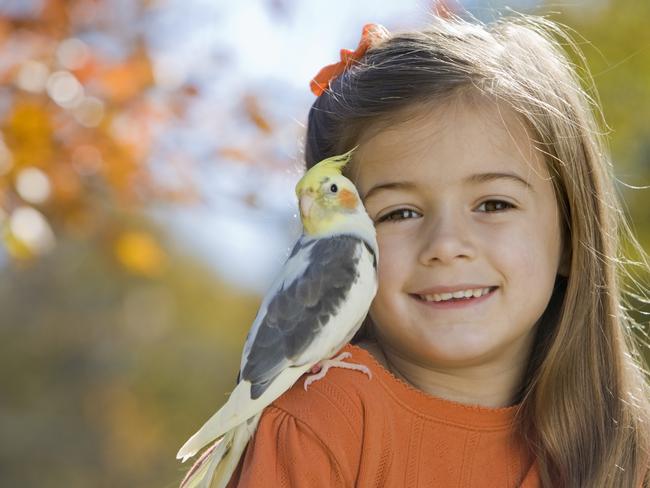This week: Dr Magdoline Awad on cockatiel behaviour
While birds make great pets, owners should ensure these specific requirements are met to ensure their feathered friend lives a happy life.
SmartDaily
Don't miss out on the headlines from SmartDaily. Followed categories will be added to My News.
Bird owners will attest that keeping a feathered pet involves much more than deciding on the right cage and feed.
While birds make fantastic pets, owners should ensure they provide a standard of accommodation, management and care appropriate to their species’ needs.
According to Animal Welfare Australia, bird ownership is a five to 10-year commitment — cockatoos can live to 80 years or more — so researching your breed should be a top priority.
A good place to start is the AWA’s Code of Practice for the Housing of Caged Birds, where you can work through a checklist.
Dr Magdoline Awad, chief veterinary officer at Greencross The Pet Company and SMARTDaily’s weekly pet columnist, explains, it can be important to watch your bird’s behaviour to determine its needs.
AFTERNOON ACTIVITY SURGE
Is it normal for birds to get hyperactive? Our cockatiel gets a big surge of excitement at 4pm every day and he makes lots of noise and moves around heaps. What is going on and what should we do?
Cockatiels are very social and interactive birds, so it sounds like he is wanting some company and things to do.

Perhaps he is waiting for your return after being out for the day? As intelligent birds, cockatiels enjoy a lot of interaction, and it is recommended to have lots of appropriate and safe toys, or a bird gym for him to play with.
Your vet can help you with tips on how to make play time safe, what precautions to take, and what kind of toys are suitable as the wrong ones can be toxic or cause intestinal obstructions if ingested.
The diet he is being fed can also make a big impact on this, as diets too high in fat (seed mixes, particularly sunflower seeds) can cause excess sex hormone production and lead to behaviour problems and diseases related to obesity and vitamin deficiencies.

Pelleted foods, and fresh fruit and vegetables are best, but must be slowly introduced if not part of the diet at the moment.
It is always recommended to have your cockatiel health checked by your local veterinarian twice a year to detect possibilities of underlying health issues.
GOT A PET QUERY?
Email smartdaily@news.com.au



